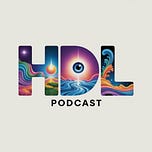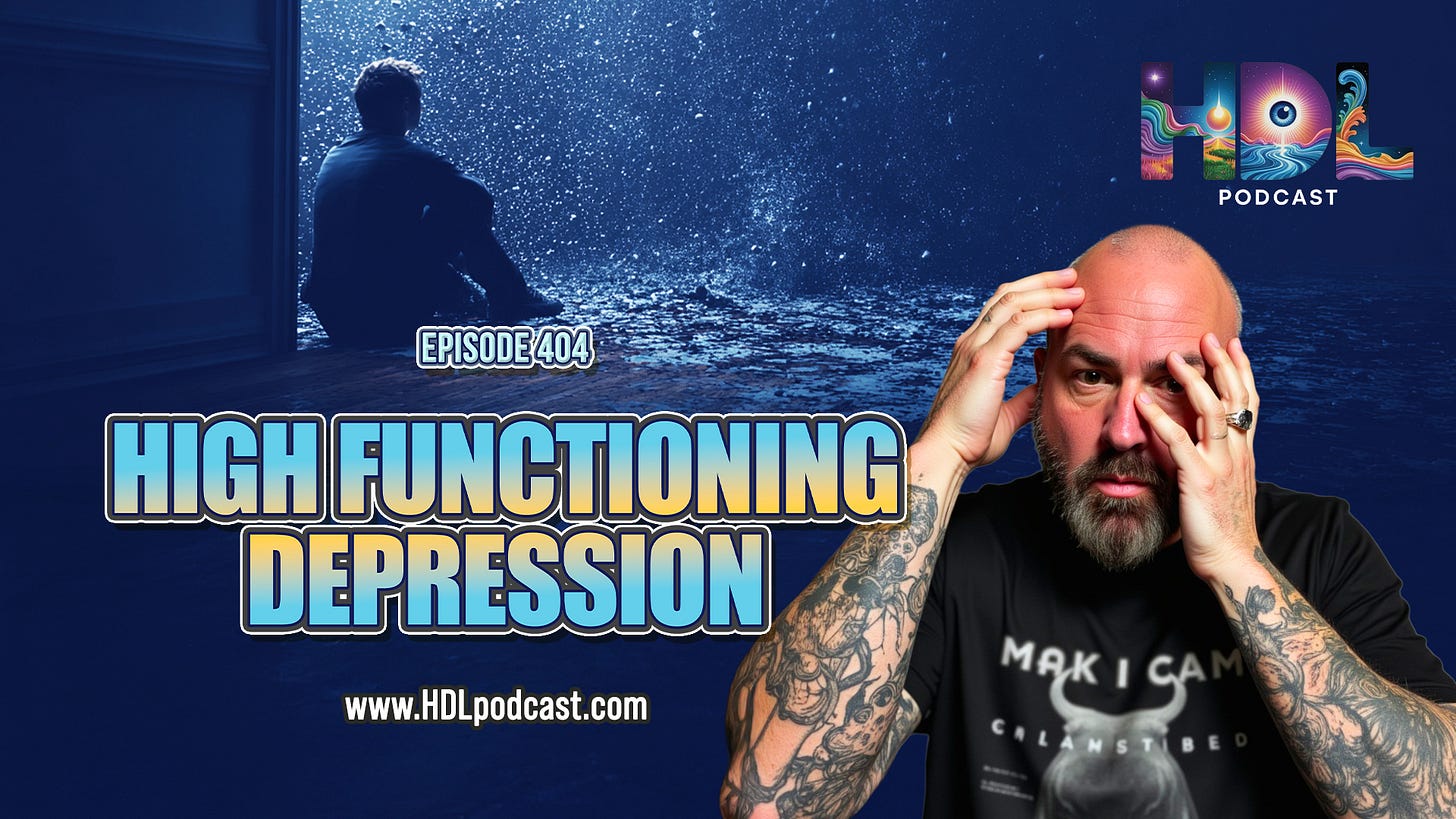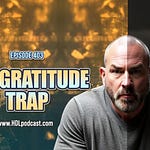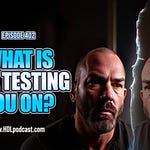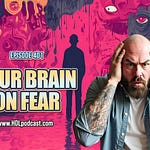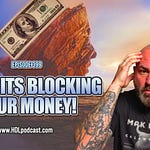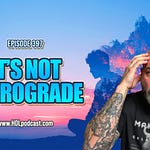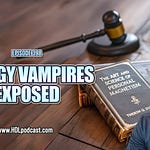The Duck on the Pond
I used to wake up every morning and crush my to-do list. I showed up for everyone around me. I maintained this perfect image of having it all together while simultaneously feeling like I was drowning inside.
Day after day. Month after month. Year after year. In slow motion.
High functioning depression is like being a duck on a pond. Above the surface, everything looks smooth, calm, and productive. But below? I’m paddling like hell just to stay afloat.
If you’ve ever felt successful on paper but empty in your soul, this one’s for you.
If you’ve been the strong friend, the reliable one, the one who always shows up—but quietly carries this heaviness inside—keep reading.
What High Functioning Depression Actually Looks Like
Here’s what most people don’t understand: high functioning depression doesn’t look like what we think depression looks like.
There’s no staying in bed for days. No obvious falling apart.
Instead, it’s:
Going to work and performing well while feeling absolutely nothing about your achievements.
Maintaining relationships while feeling completely disconnected from everyone—even yourself.
Smiling through social events while experiencing profound, inexplicable emptiness.
I traveled the world. Had a great bank account. Achieved goal after goal.
And I felt... nothing.
When I’d reach a milestone, there was no excitement. Just this quiet voice asking: What’s the point?
The tricky part? I was still functioning. So I convinced myself I didn’t need help. I was just tired. Just stressed. Just not trying hard enough.
But here’s what I learned: You can be both competent and suffering. Success doesn’t cancel out pain.
The Toolkit That Saved Me
I didn’t climb out through one approach. I wove together multiple threads of wisdom—some clinical, some ancient, some channeled from non-physical consciousness.
This isn’t conventional. But it worked.
1. The DBT Foundation
Dialectical Behavior Therapy (created by Marsha Linehan) is typically used for borderline personality disorder. But the skills changed my life with depression.
Three DBT practices that saved me:
Opposite Action When depression tells you to isolate, do the opposite immediately. Reach out. When it tells you to stay in bed, move your body. Not because you feel like it—you won’t feel like it—but because action comes first, feelings follow later.
Depression wanted me smaller. I had to practice expansion.
I started small: walks, getting sun in the morning, texting a friend.
Radical Acceptance Instead of fighting the depression or judging myself for having it, I practiced accepting reality as it is right now.
“I’m experiencing depression. This is what’s true. But I can still take the next right action.”
No more “I shouldn’t feel this way.” Just: this is what is.
TIPP (Distress Tolerance) When emotional overwhelm hit, I used TIPP:
Temperature: Cold water on your face resets your nervous system. I’d take multiple showers a day—hot to cold, hot to cold.
Intense exercise: 30 jumping jacks, planks, anything to get the heart rate moving
Paced breathing: Box breathing (4-4-4-4) resets everything
Paired muscle relaxation: Finding where I’m tense and consciously releasing it
These aren’t cures. They’re bridges—they get you through acute moments so you can do the deeper work.
2. Jesus as a Conscious Teacher
Here’s where it gets interesting.
I grew up in a Christian home. But I shed the dogma to find the truth underneath. When you read Jesus’ words not as religious doctrine but as conscious teachings, everything changes.
Luke 17:21: “The kingdom of God is within you.”
This isn’t about some afterlife reward. He was saying: your liberation, your wholeness, your connection to Source—it’s already inside you.
High functioning depression made me search everywhere outside myself for validation, purpose, meaning.
Jesus was saying: No. It’s inward.
Matthew 11:28: “Come to me, all who are weary and burdened, and I will give you rest.”
Jesus represents Christ Consciousness—the awakened state available to all of us. He wasn’t saying “I’m special and you’re broken.” He was saying “I’ve remembered who I am, and you can too.”
When I was drowning, I stopped begging an external God to fix me. Instead, I started connecting to the divine presence already within me—my higher self, the part that’s never depressed, never broken, always whole.
I’d sit in meditation and imagine Jesus—not as a religious figure, but as pure, unconditional love. He would sit with me, not fixing me, just witnessing me with complete acceptance.
That consciousness of radical love would bring tears. Sometimes I’d just sit there crying in bliss.
That’s accessible to you right now.
3. Abraham Hicks: Becoming a Creator
Whether you view Esther Hicks’ work as channeled collective consciousness or just brilliant teachings, it helped pull me out of victimhood.
Abraham teaches that we’re vibrational beings in a vibrational universe. We get more of whatever we give our attention to—not as punishment, but because that’s how creation works.
Depression had me focused on what was wrong: wrong with me, wrong with my life, wrong with the world.
But Abraham’s teaching about the Emotional Guidance Scale was revolutionary:
You don’t have to jump from depression to joy. You just need to reach for the next best feeling thought.
The progression:
Hopelessness → Anger (anger has energy!)
Anger → Frustration
Frustration → Contentment
Contentment → Optimism
Optimism → Joy
The key insight: “You didn’t come here to fix yourself. You came here to know yourself as a creator.”
I wasn’t broken. I didn’t need repair. I was a powerful being who had temporarily forgotten how to align with Source energy.
Practice: The Rampage of Appreciation
Every morning, start listing tiny things you appreciate:
The warmth of your coffee mug
The smell and taste
Your dog’s unconditional love
That you woke up today
This gently shifts your vibration by redirecting attention—not forcing positivity, but choosing where to focus.
4. Matt Kahn: The Love Revolution
This is perhaps the most powerful teaching of all.
Matt Kahn’s core message: Whatever arises, love that.
Depression arises? Don’t reject it. Don’t ignore it. Don’t judge it. Don’t try to spiritually bypass it.
Turn toward it with love.
“I love you, depression. I see you here. You’re not bad. You’re not wrong. You’re just trying to protect me from something. And I love you.”
Sounds insane, right?
But here’s what happened: When I stopped fighting depression, when I stopped making it my enemy, its power began to dissolve.
Matt says: “The fastest way to heal is to love what hurts.”
He also teaches that the universe is always loving us, always supporting us—even when we don’t feel it. Every painful experience is life loving you into greater expansion.
The Practice That Changed Everything
The “I Love You” Practice
Multiple times a day, place your hand on your heart and say:
“I love you. I’m here for you. You’re safe. And you’re enough.”
Not to your ego. To your soul.
I speak to the part of me that depression convinced was unlovable.
Over time, I began to believe those words.
“I love you. I’m here for you, Jason. You’re safe right now. And you know what? You are enough.”
Your Toolkit
Here’s what you need to remember:
DBT gave me practical skills to manage acute symptoms
Jesus/Christ Consciousness reminded me that peace and wholeness are already within me
Abraham Hicks taught me I’m a powerful creator who can shift vibration through focus and appreciation
Matt Kahn showed me that love is the ultimate healing force, and it starts with loving myself
A Message If You’re in It Right Now
High functioning depression doesn’t mean you’re weak.
It means you’ve been strong for so long that you forgot it’s okay to need support.
You’re not broken. You’re not behind. You are exactly where you need to be for your next level of evolution.
Pick one practice from this article:
Opposite action when you want to isolate
A rampage of appreciation
Telling yourself “I love you”
Start there.
You’re not alone in this.
Until next time, remember: You are already whole.
– Jason
Discussion Question
Which of these practices resonates most with you? Have you experienced high functioning depression? Share your story in the comments—community is everything.
P.S. If this helped you, please share it with someone who needs to hear it. Sometimes we’re the strong friend who needs someone to be strong for us.

